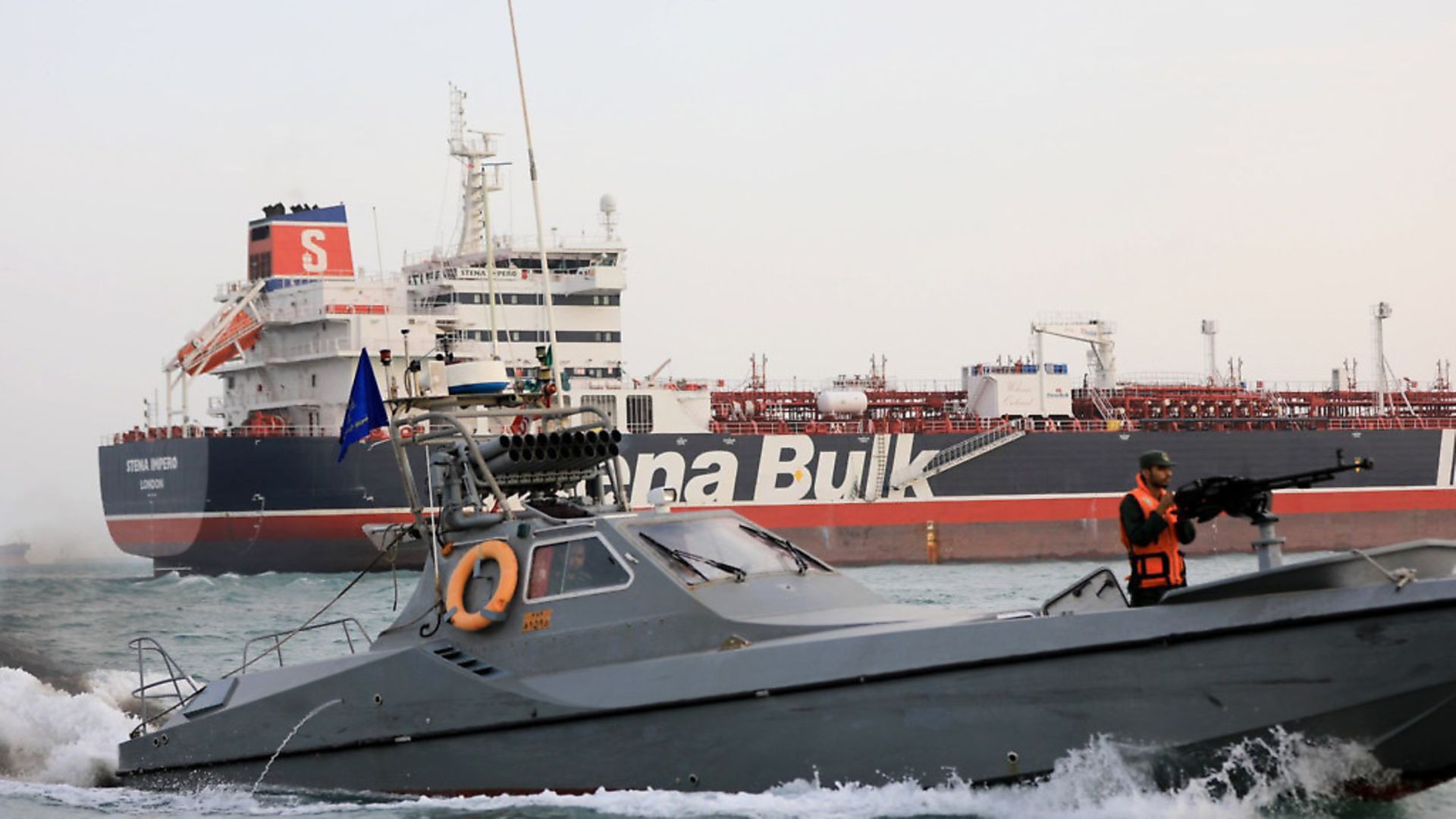
The seizure of a British-flagged ship is a classic exhibition of Brexit bluster, says ANDREW ADONIS, with a new prime minister in as little control of the seas as he is his mouth.
Nothing has done more to exhibit Brexit Britain as the new orphan of Europe than the Iranian ship crisis. After three days of abject humiliation when a British-flagged ship was seized by the Iran’s Revolutionary Guard, the last act of the May government was to announce that Britain no longer rules the waves. Instead Brexit Britain is begging our European neighbours to create a naval force to shepherd convoys through the Gulf.
This could, of course, have happened before Brexit. But the circumstances leading up to the seizure were a classic exhibition of Brexit bluster – the daily diet of Boris Johnson – meeting hard reality almost immediately.
It began a week earlier when Tory leadership candidate and foreign secretary Jeremy Hunt, in concert with one of Her Majesty’s last overseas territories, Gibraltar, decided to stop an Iranian vessel passing through, on suspicion of Syrian sanctions busting.
Her Majesty’s Government made strong, legally correct, statements about international law. But in realpolitik, Britain had not been expected to act on its own in this way – indeed last minute changes to Gibraltarian law had to be rushed through to create the legal basis for impounding Grace 1.
In reality, Hunt was doing Trump’s bidding in the stand-off between the European Union and the rabidly anti-Iranian White House. EU policy is ‘jaw jaw not war war’, which was US policy too under Obama, hence the hugely delicate nuclear treaty with Tehran which had brought about a rapprochement. Trump unilaterally withdrew from the treaty, and Brexit Britain was currying favour with the Trump gang by strutting on the waves.
But there was a problem. Nelson is long dead and the Royal Navy now has more admirals than naval ships. Britain had precisely one frigate in the Strait of Hormuz to protect British-flagged shipping when Iran impounded Grace 1. Hence the humiliation of Stena Impero being seized by substantial amphibious forces of the Revolutionary Guard while the captain of HMS Montrose pleaded with them to leave it alone.
Nor did we have huge forces to send afterwards. Montrose is being replaced – not even supplemented – by a single destroyer, HMS Duncan, which is the limit of British capacity.
The abject nature of Britain’s weakness is exhibited by the Foreign Office advice to British registered shipping to keep clear of the Gulf entirely. Imagine Lord Palmerston or even Margaret Thatcher telling British-flagged ships to stay in port indefinitely because they might be attacked if they venture on the high seas.
The key point is not that modern Britain has a small navy. All European states have small navies nowadays and cannot afford otherwise. Rather, having a small navy, we should not have adopted a bellicose policy without a protective agreement with either the US or European allies, and preferably both, to ensure safe passage of British-flagged shipping after the seizure of Grace 1.
Why did we not do so? There was a complete failure of diplomatic and political leadership. The British government now barely exists for any purpose other than futile Brexit negotiations. But there was also a total failure to appreciate Britain’s strategic predicament in the age of Trump. The pre-Brexit UK strategy of acting as a ‘bridge’ between the US and Europe only worked if the US acted sensibly and Britain was firmly anchored in the EU. Even then it came under strain – witness the Iraq War – but within a context where Britain only acted when it had clear American support, not just American bluster.
Last week, however, there were just Trumpian bromides. Trump did not lift a finger – even a tweet – to stop the seizure of Stena Impero. His statements of support thereafter were weak, as the Iranians noted in making still stronger threats about further seizures of British shipping.
At this stage, in a hurried volte face, Britain had to approach European allies about the possibility of creating a European naval force to protect convoys through the Gulf. Which is where British policy should have started, if a sanctions-enforcing naval posture was to be attempted. But in Brexit Britain, Europe is toxic. No sooner had Jeremy Hunt made the request of our EU allies than Brexiters denounced the possibility of a ‘European navy’ and called for his head.
When Nelson put the telescope to his blind eye, he commanded the greatest naval forces in the world. Today, we have a prime minister as little in command of the sea as he is of his mouth.









